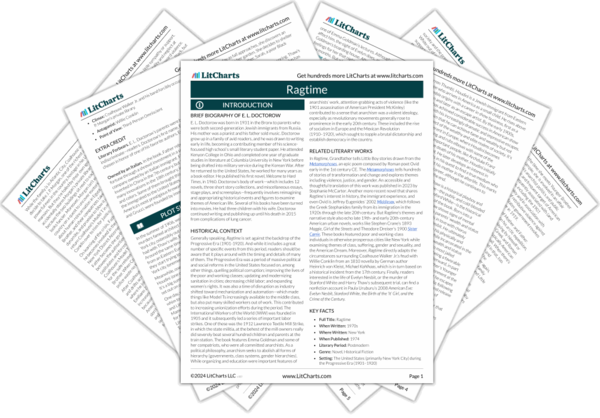By renaming the Progressive Era (1901–1920) as the era of Ragtime, Ragtime uses the musical genre to represent the massive social changes underway at the dawn of the 20th century in America. It is the music Coalhouse Walker Jr. plays and the family’s reactions to it—Father’s distaste, Little Boy’s fascination, Younger Brother’s admiration—align with their views about the social changes they’re caught up in. In particular, ragtime’s specific music style suggests the creativity and vitality of freedom and possibility. Its history suggests social mobility and change, as it developed out of the musical traditions of both free and formerly enslaved Black people. Its earliest composers, like Scott Joplin, were Black, yet the music achieved widespread appeal in its heyday. Musically, one of ragtime’s most notable features is its syncopated rhythm. Drawn from African and Black American musical traditions, this syncopation stands in stark contrast to the more regular rhythms of the band marches from which ragtime evolved. The quirky beats and complicated musical patterns suggest the innovation and creativity of the era, as well as the loosening of traditional values and hierarchies that paved the way for women’s liberation and the civil rights movements in the later part of the century.








